Help, my horse has stomach problems!

Stomach problems in the horse? MUSTAX G (Gastro) helps!
Stomach problems up to acute ulcers are unfortunately one of the most common diseases in horses today. Feeding and keeping that is not appropriate for the species, as well as increased stress, simply make the horse's stomach too "sour". According to current studies, up to 40% of all leisure horses, 50% of all foals, 60% of all show horses and almost 90% of all race horses suffer from abnormalities.
In contrast to humans, who only produce gastric acid directly after eating, in horses this acid is produced constantly, i.e. around the clock. However, if the natural protective mechanisms are disturbed, the gastric acid temporarily comes into direct contact with the gastric mucosa, which often leads to irritation of the gastric mucosa (gastritis). If this condition persists for a longer period of time, the dreaded gastric ulcers (gastric ulcers), also called Equine Gastric Ulcer Syndrome (EGUS), can develop.
Symptoms of stomach problems
Often, symptoms are relatively non-specific at first and may not directly indicate a stomach problem. However, there are signs/behaviors in your horse that may indicate gastric ulcers:
In adult horses:
- Acute or recurrent colic, especially after eating concentrates.
- Poor or selective eating, increased or reduced drinking.
- Mouth odor, teeth grinding, flehmen/empty chewing/burping.
- Poor general condition, weight loss
- Behavioral changes, loss of performance and inability to ride
- Defensive behavior when saddled and/or girthed
In foal:
- Diarrhea, colic
- Poor milk drinking or constant abortion
- Heavy salivation, teeth grinding, bloated belly
- Fever and changes in blood count
- Dull coat
- Poor developmental condition
Diagnostics
If you notice one or more of these symptoms frequently, a professional diagnosis is highly recommended! An exact diagnosis can only be made by your veterinarian and only with the help of a gastroscopy. If this is not possible, the veterinarian will perform a so-called diagnostic therapy. This means that your horse will receive the therapy that horses with gastric ulcers would receive. If the symptoms improve noticeably, a gastric ulcer is very likely to be the cause.
Causes
Mainly mistakes in feeding, keeping, training as well as stress are among the biggest risk factors that can contribute to the development of gastric ulcers. Above all, a lack of high-quality roughage, too much starchy concentrated feed in too few portions and too long feeding breaks are held responsible here. However, inappropriate husbandry with little or no access to pasture and/or paddocks, lack of social contact and stressful transport can also play a role. Intensive training with a lot of trotting and galloping work, for example, increases the pressure in your horse's abdomen, so that the acidic gastric juice comes into contact with the stomach wall for longer.
In equine sports, performance stress can hardly be avoided completely during the show season. Intensive training and competitions are always associated with physical and psychological stress, regardless of how well your horse is prepared for these situations. That is why, even with optimal husbandry and feeding, the risk of developing stomach problems increases with the intensity of competition participation. The stress tolerance level varies greatly from horse to horse. It is important to know the exact stress level of your horse in order to be able to better assess what can be expected of it and what should not be expected of it. Emotional stress", e.g. due to a change of stable or herd, must also be taken into account.
Also colics like intestinal blockage, intestinal displacement or regurgitation, can promote the subsequent development of gastric ulcers. Of course, pain, feed deprivation and the administration of medication are also responsible for this.
Medication
As a rule, stomach problems in horses can be treated well - however, the duration as well as the success of the treatment depend on the severity of the disease, the optimization of feeding, housing and training conditions, as well as the healing of any underlying diseases, should these be (co-)causes of the ulcer. In drug therapy, the active substance "omeprazole" is predominantly used. This is a proton pump blocker, which quickly and effectively reduces gastric acid production, so that the healing process can begin directly.
After completion of the acute therapy, or in the case of minor problems, MUSTAX G reliably keeps the gastric acid of your horse in balance, making it more satisfied, noticeably more willing to perform and more balanced.
MUSTAX G thus offers an effective solution for your horse's health and satisfaction. It is a 100% natural feed supplement that actively assists in absorbing excess stomach acid and creates a balanced pH level in the stomach when used daily. This makes MUSTAX G the optimal alternative to treating ulcers with extremely expensive preparations and effectively and gently avoids gastric acidity and stomach problems!
MUSTAX G is doping-free and ADMR compliant

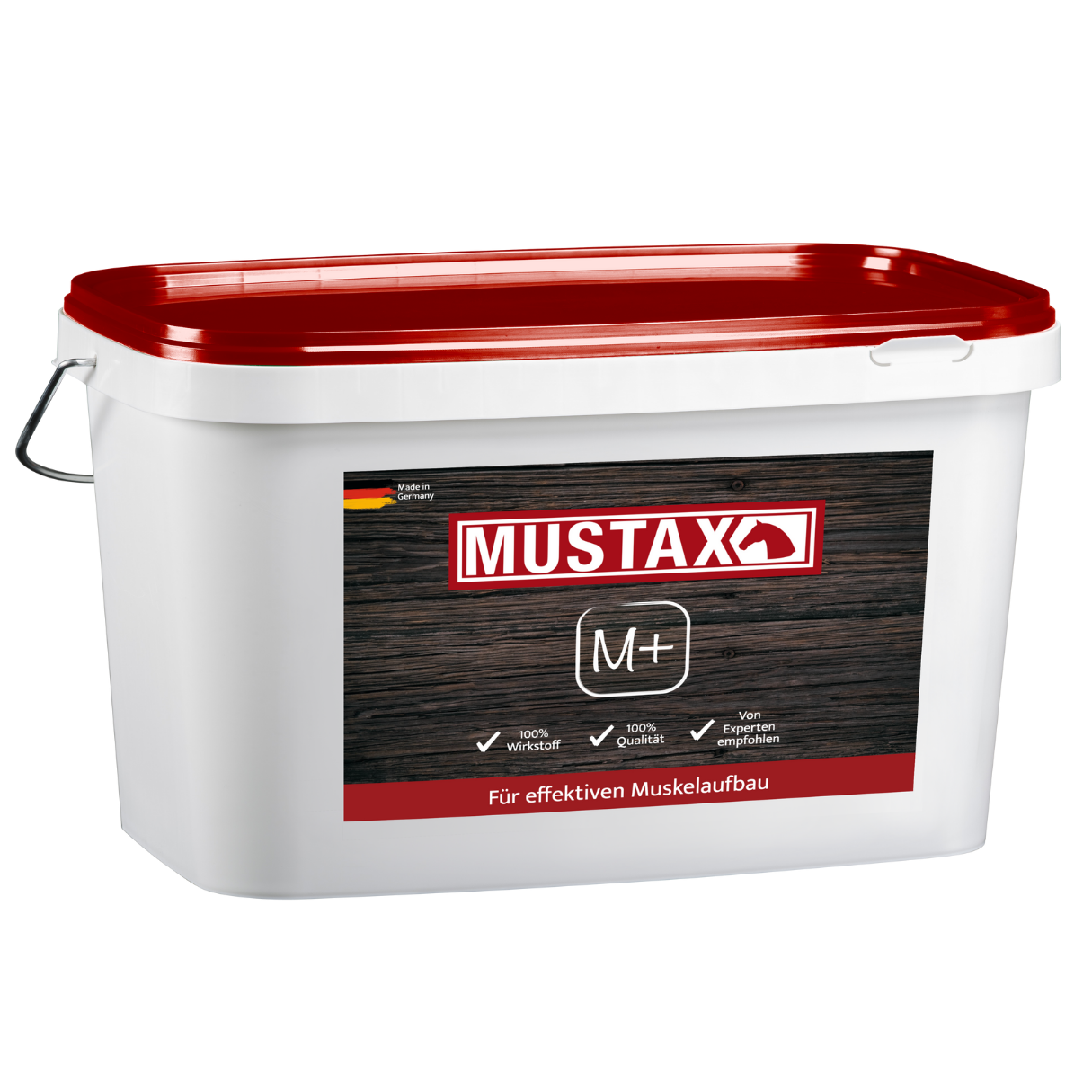

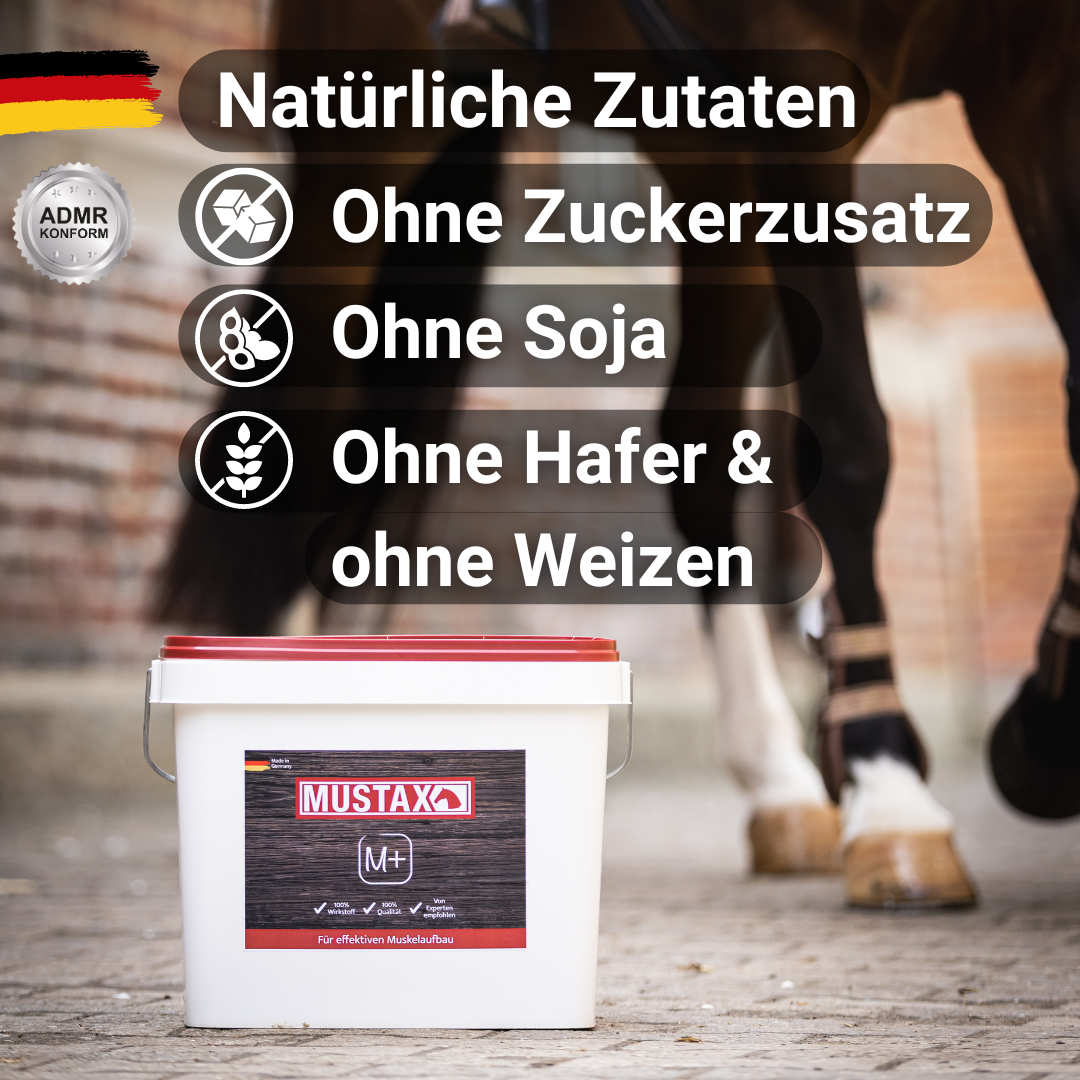
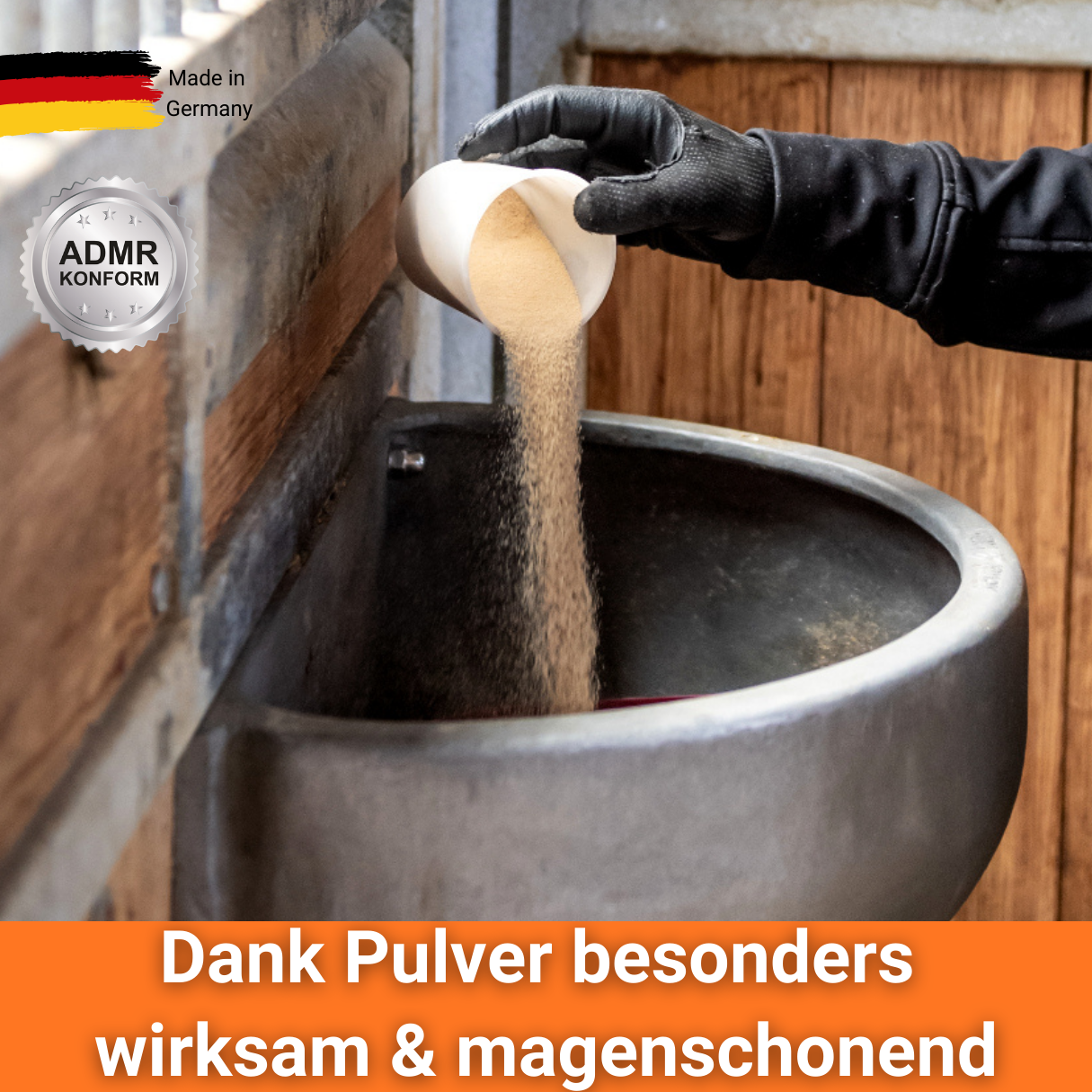
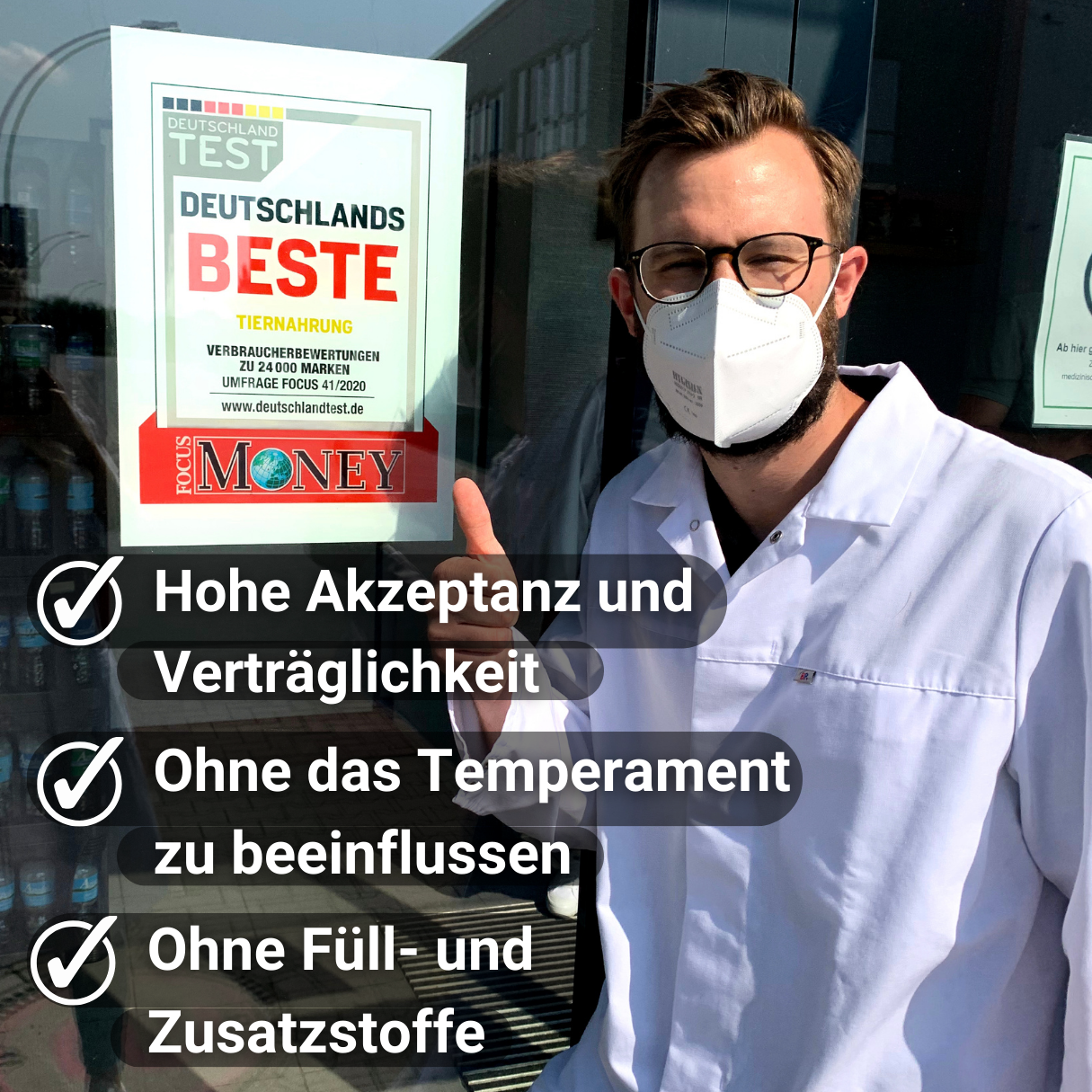
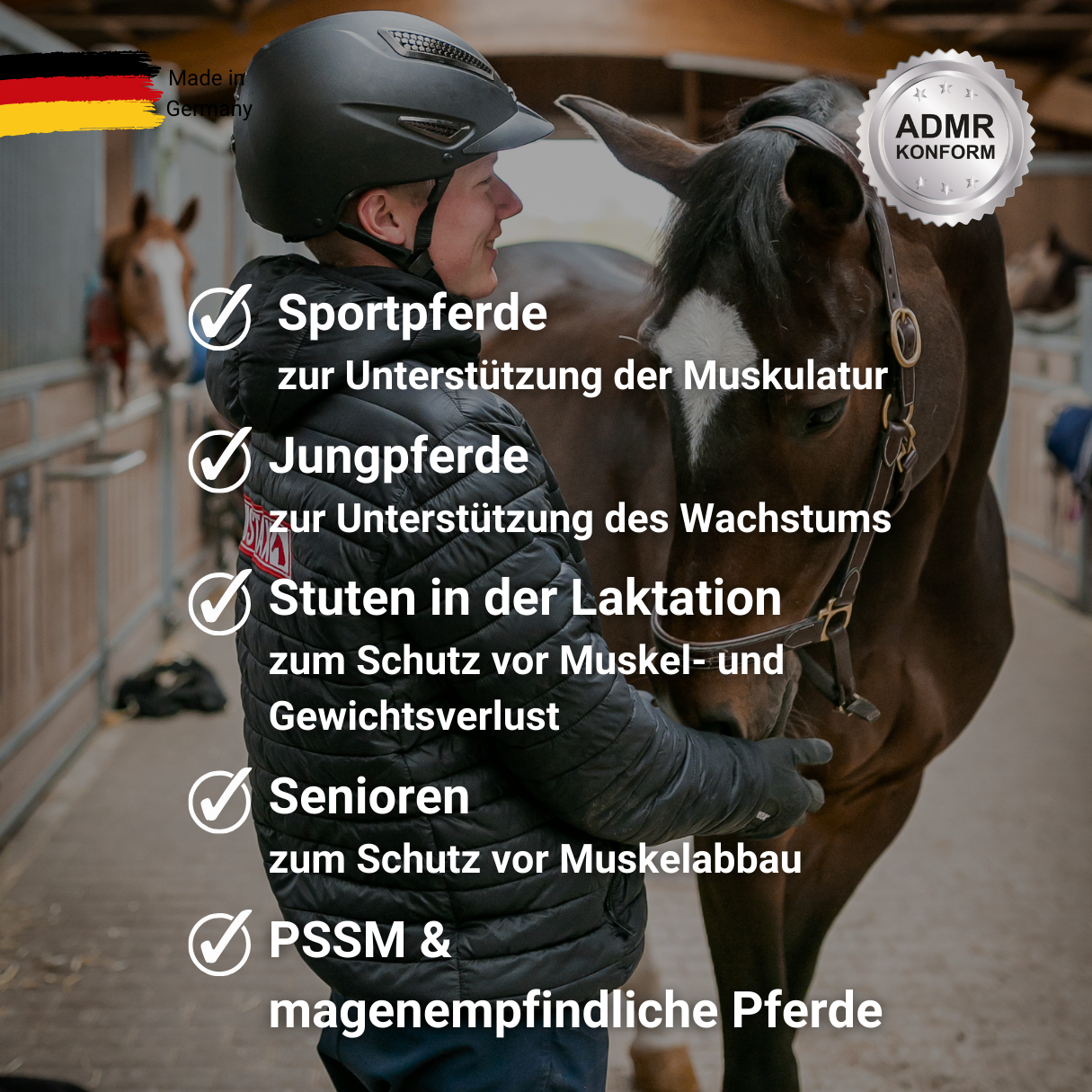
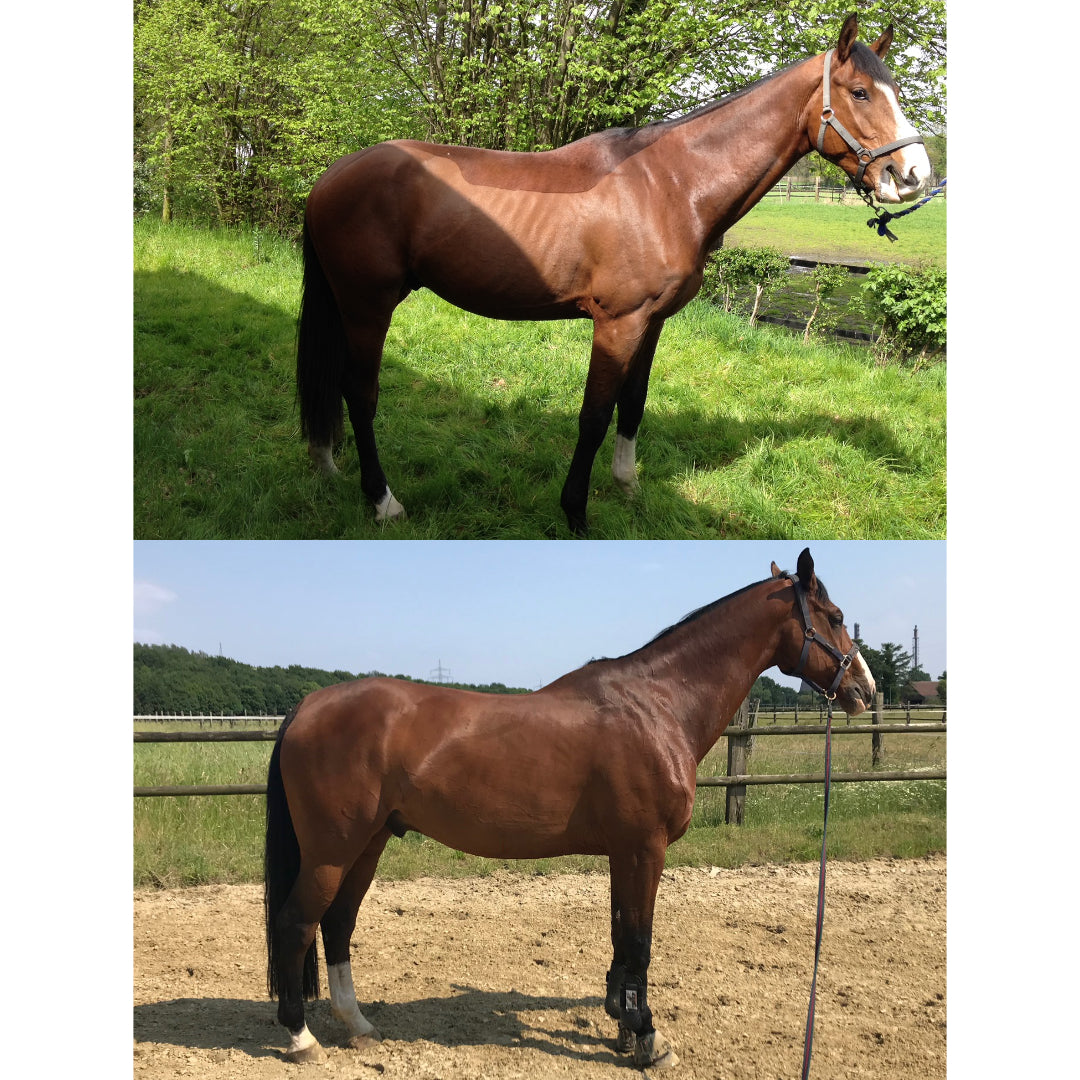
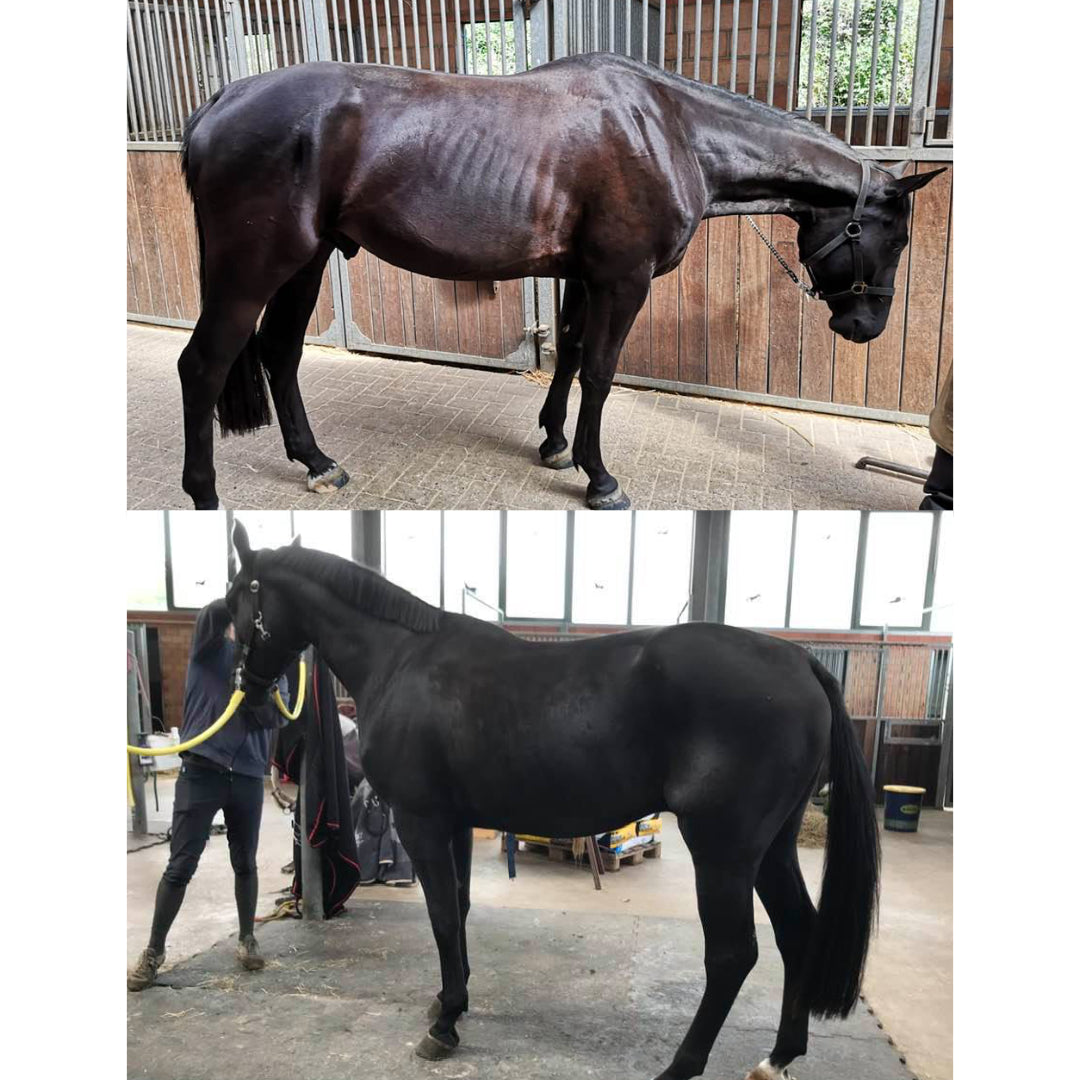
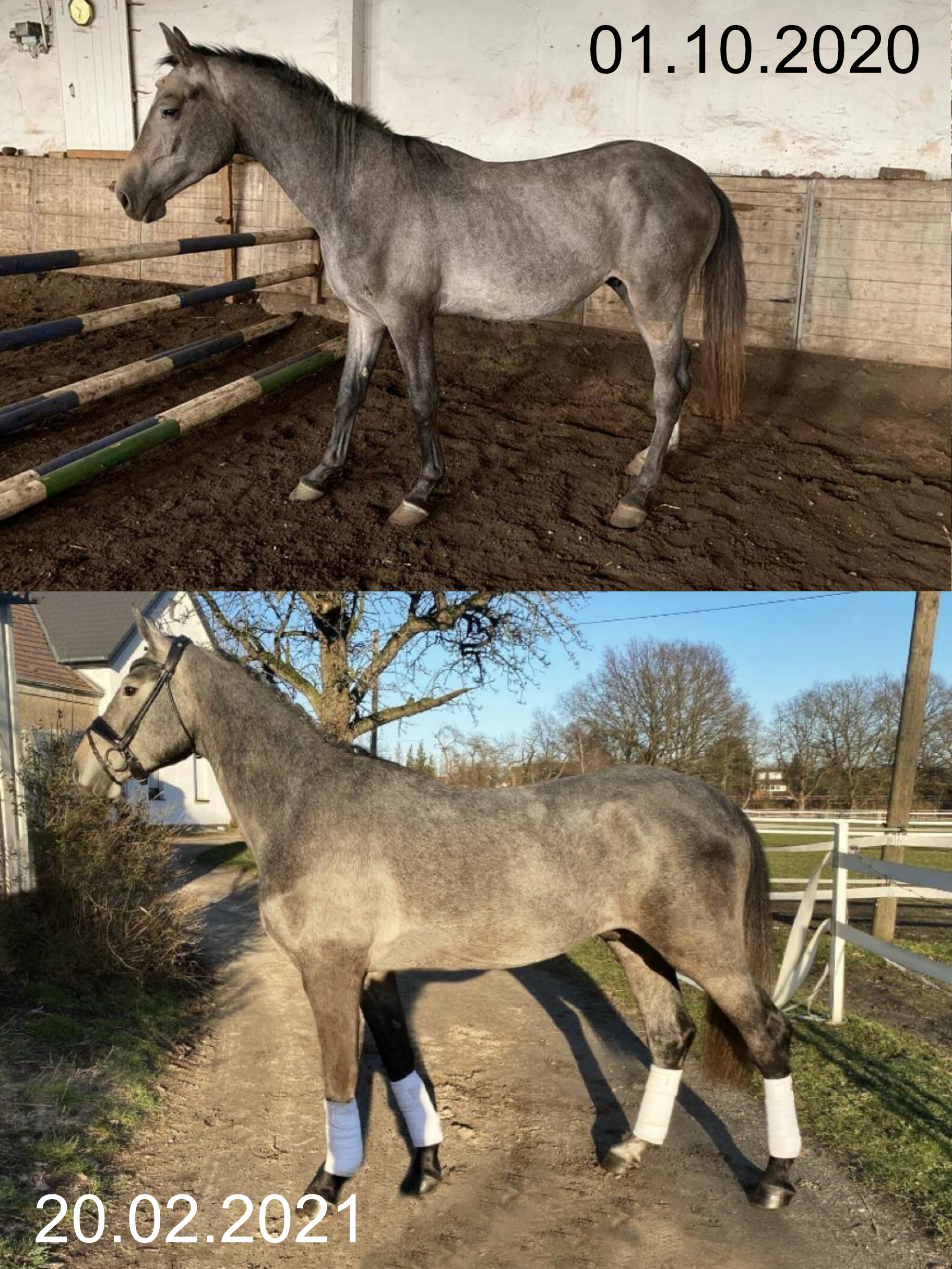
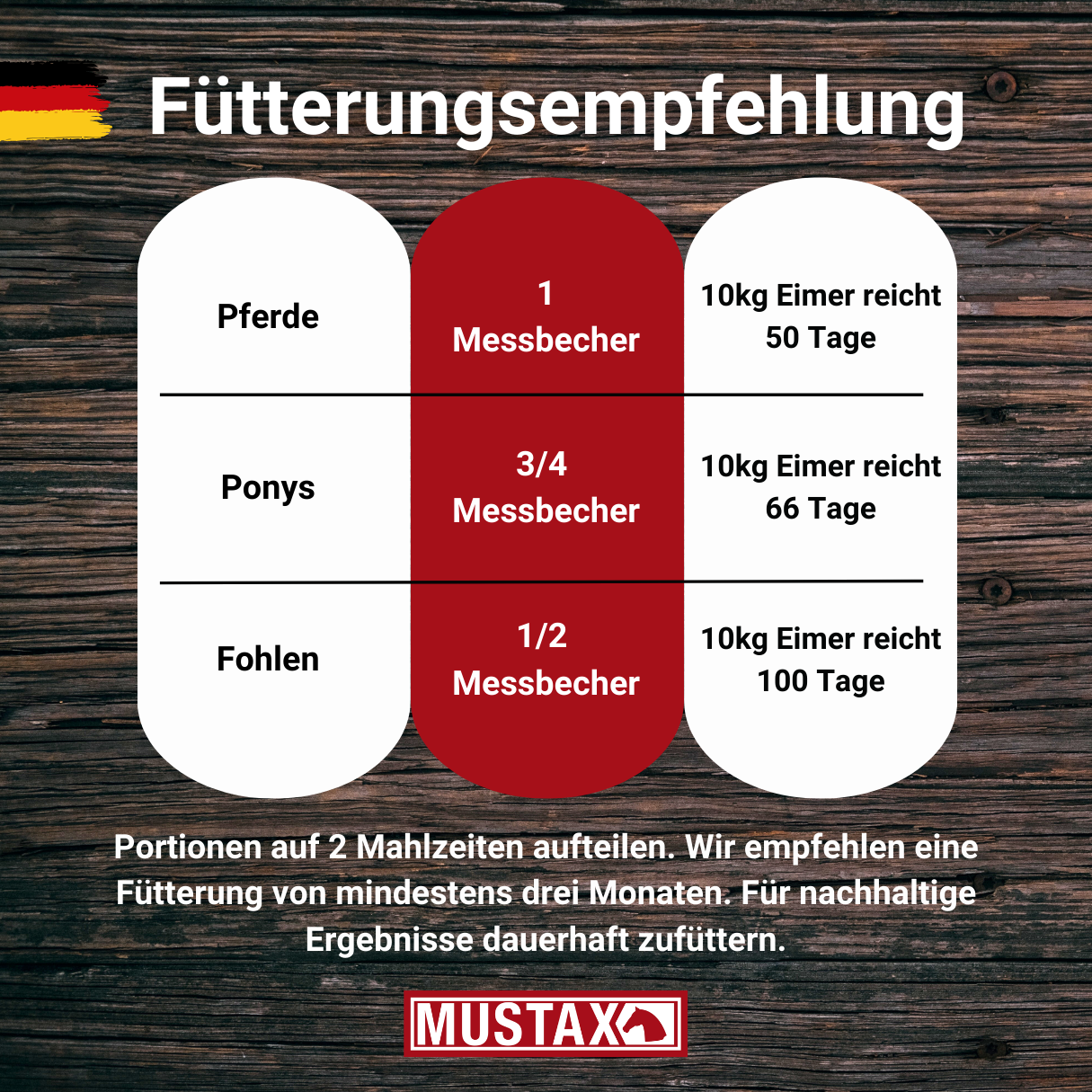
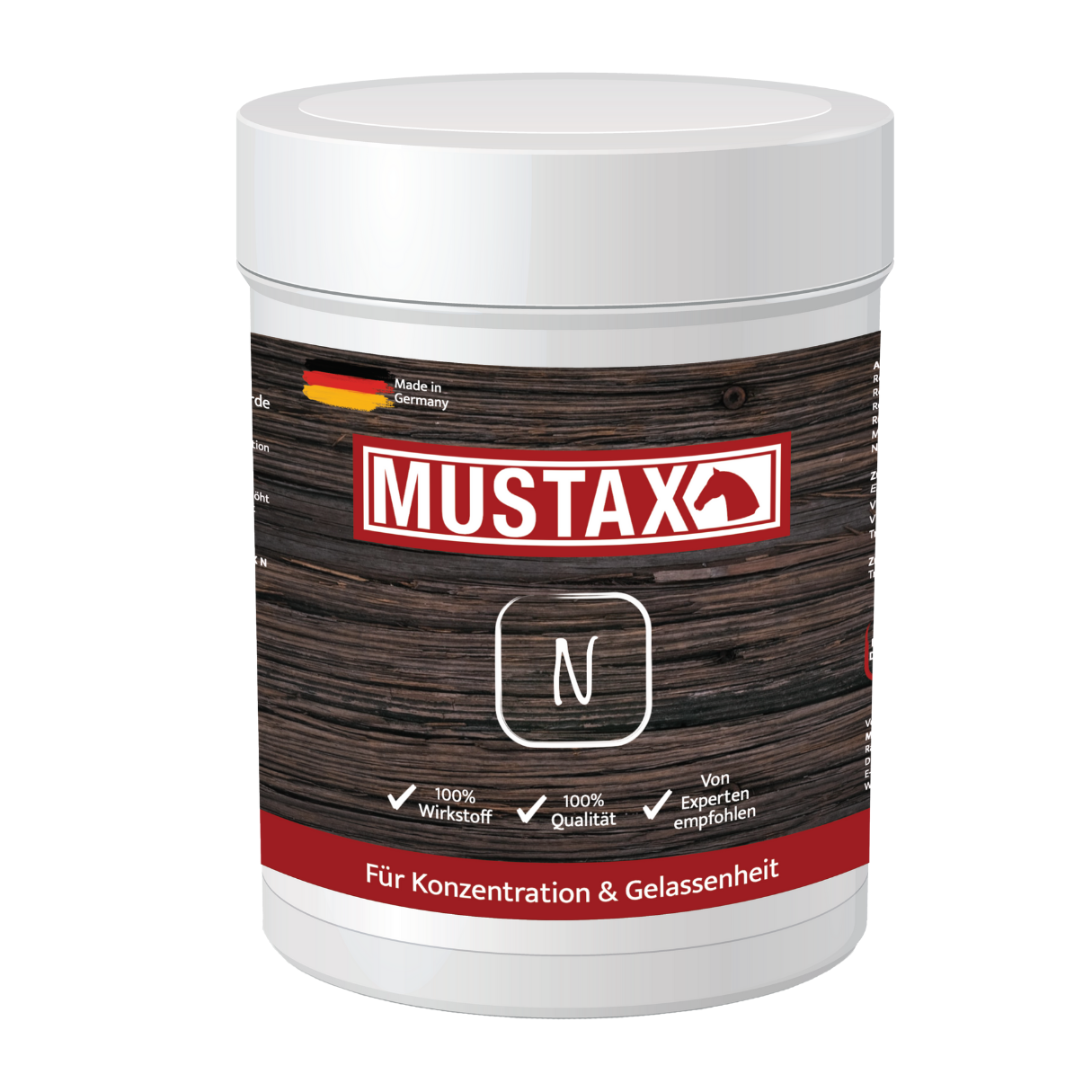
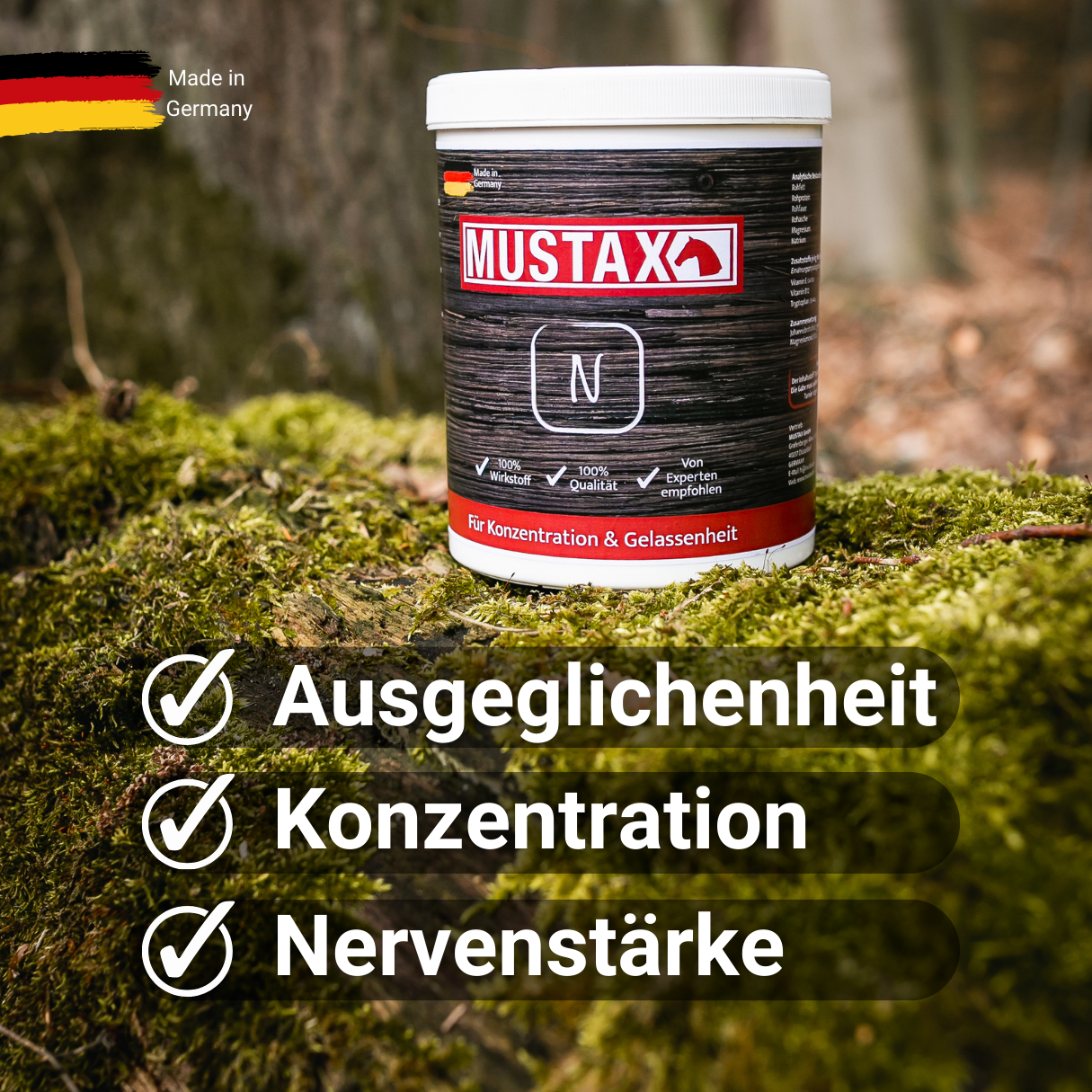
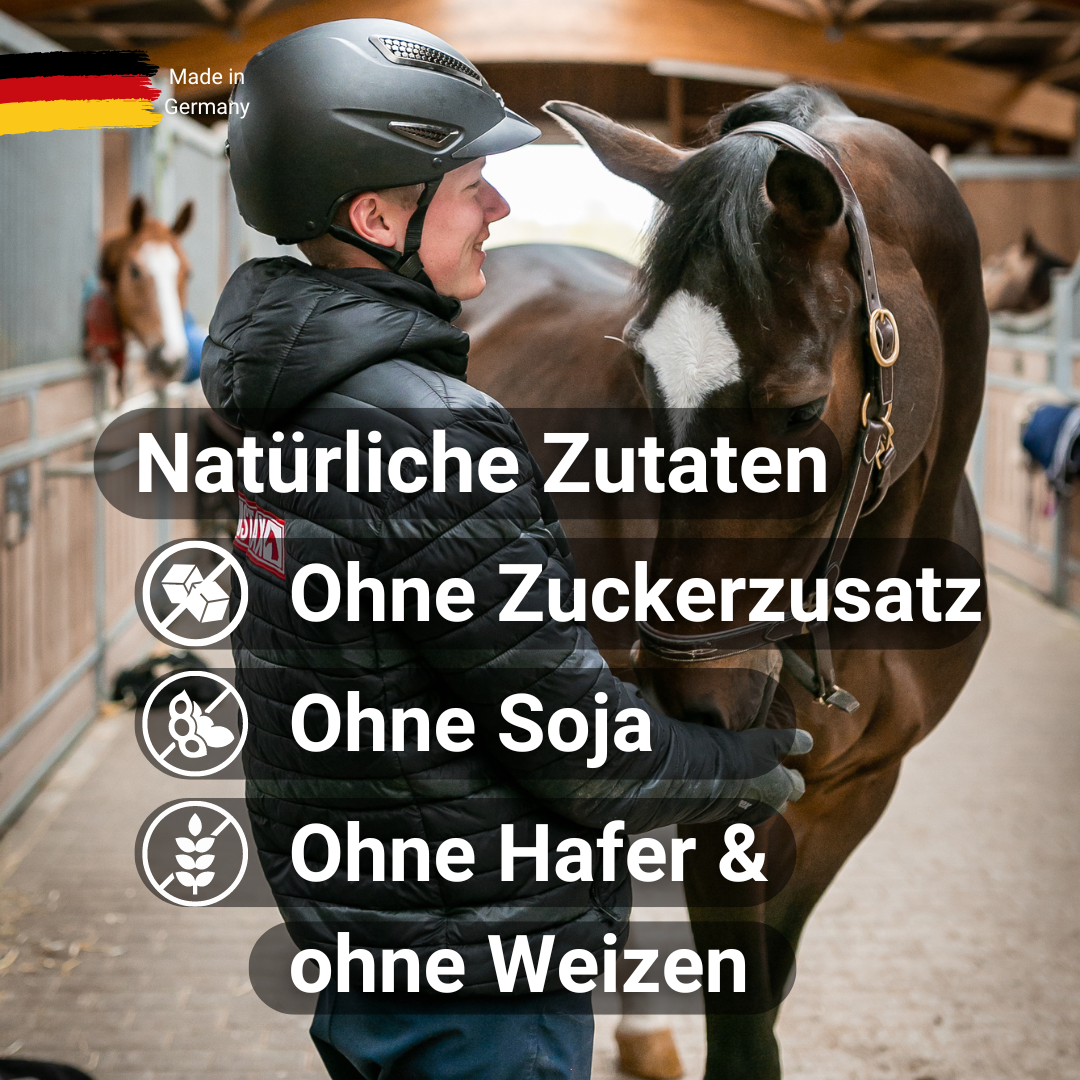
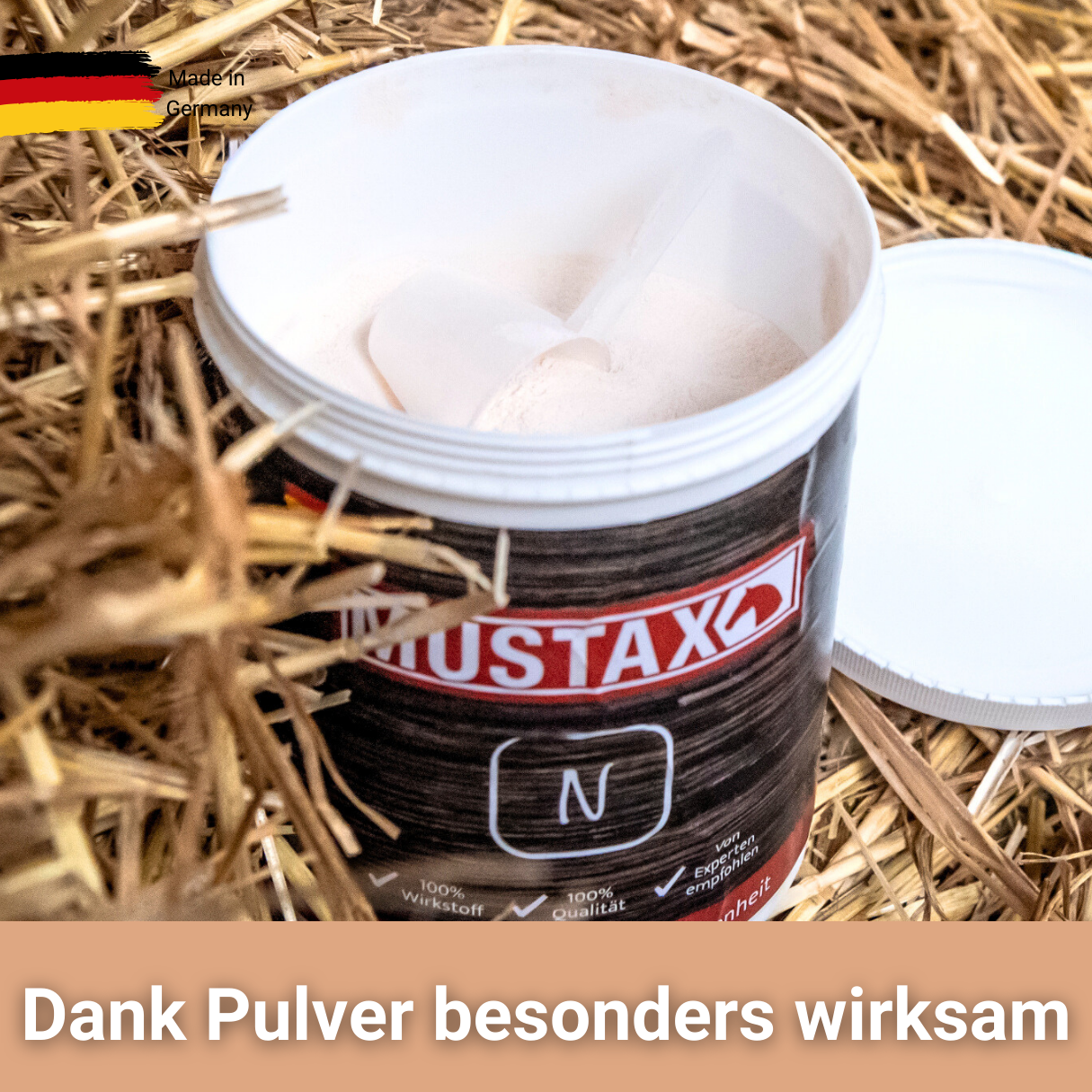

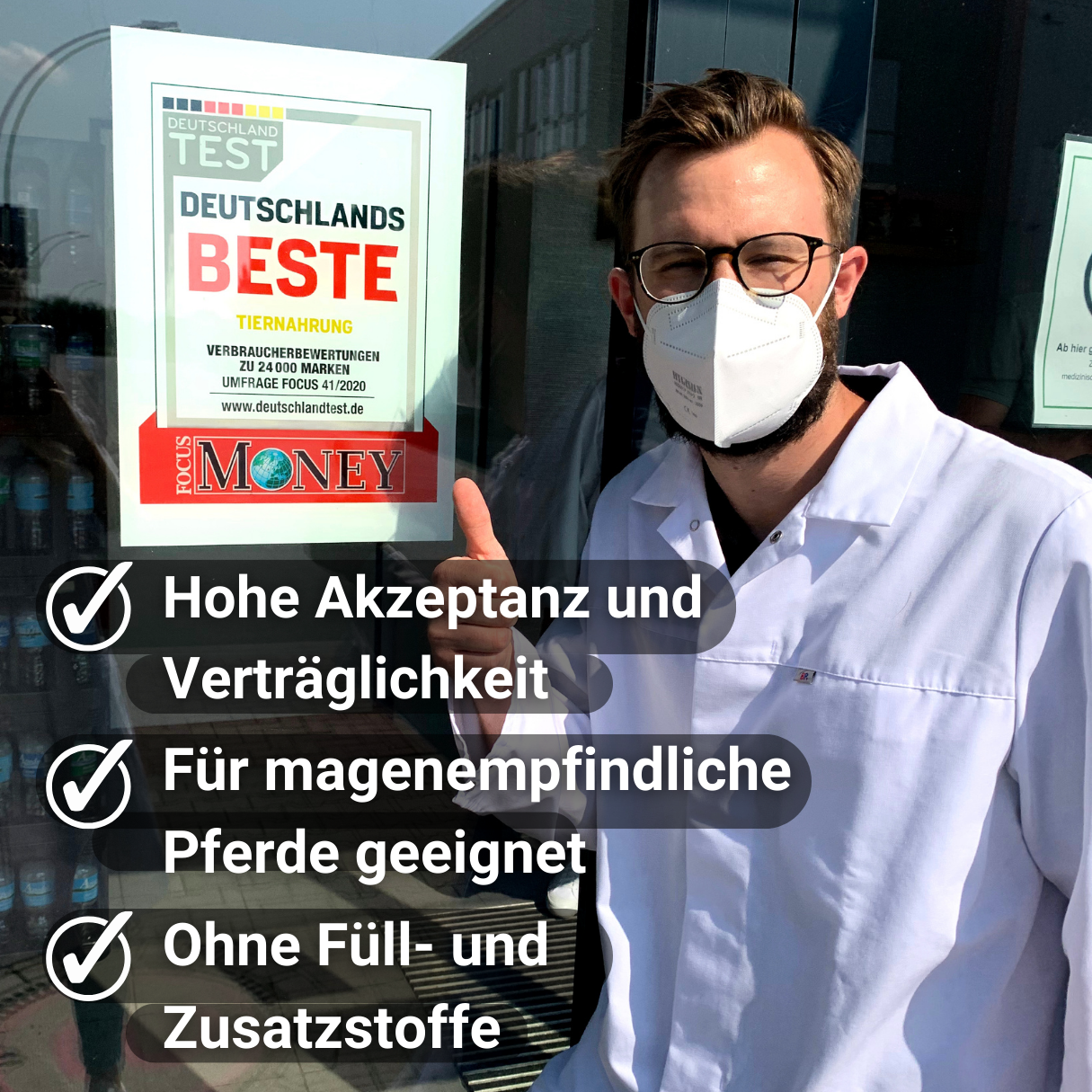


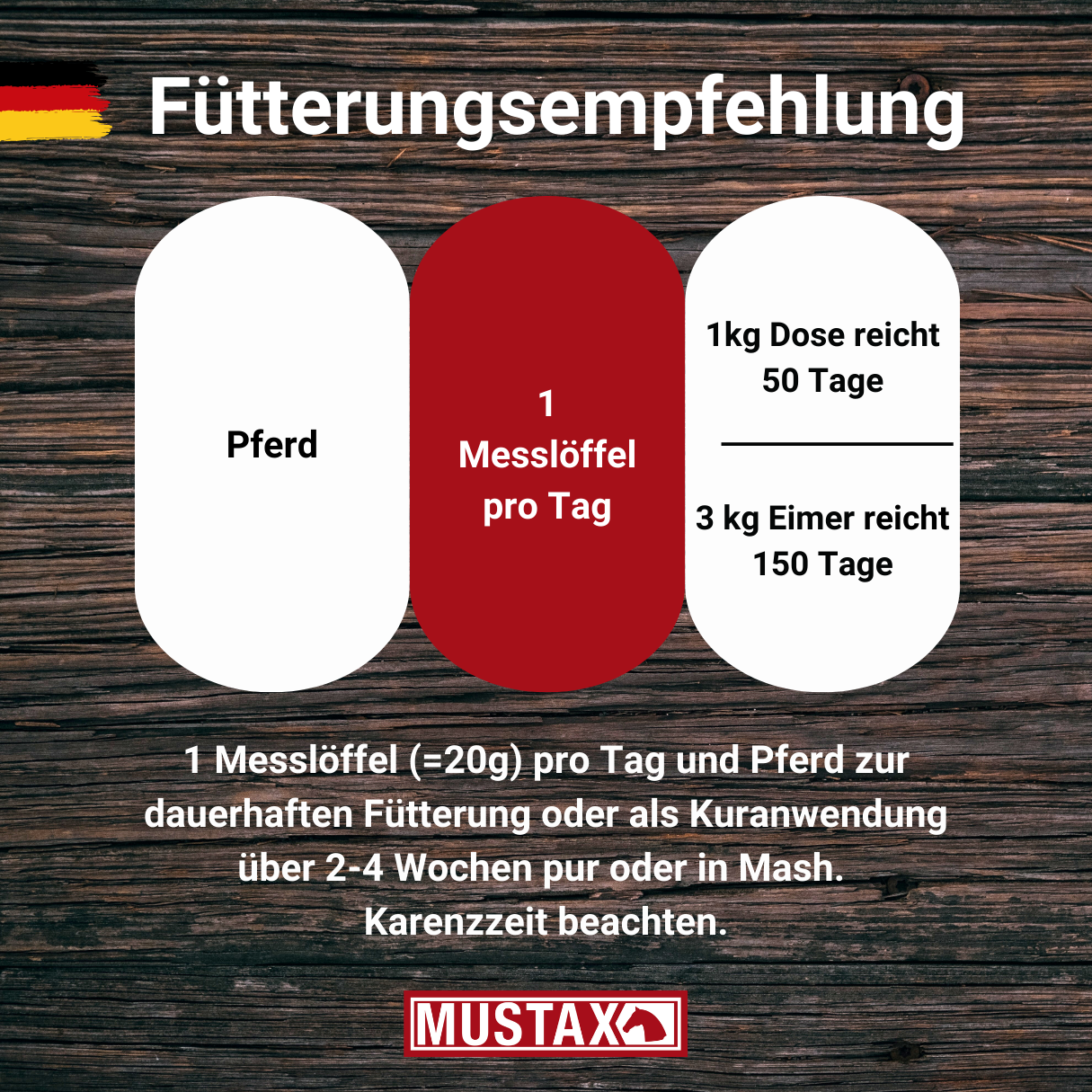
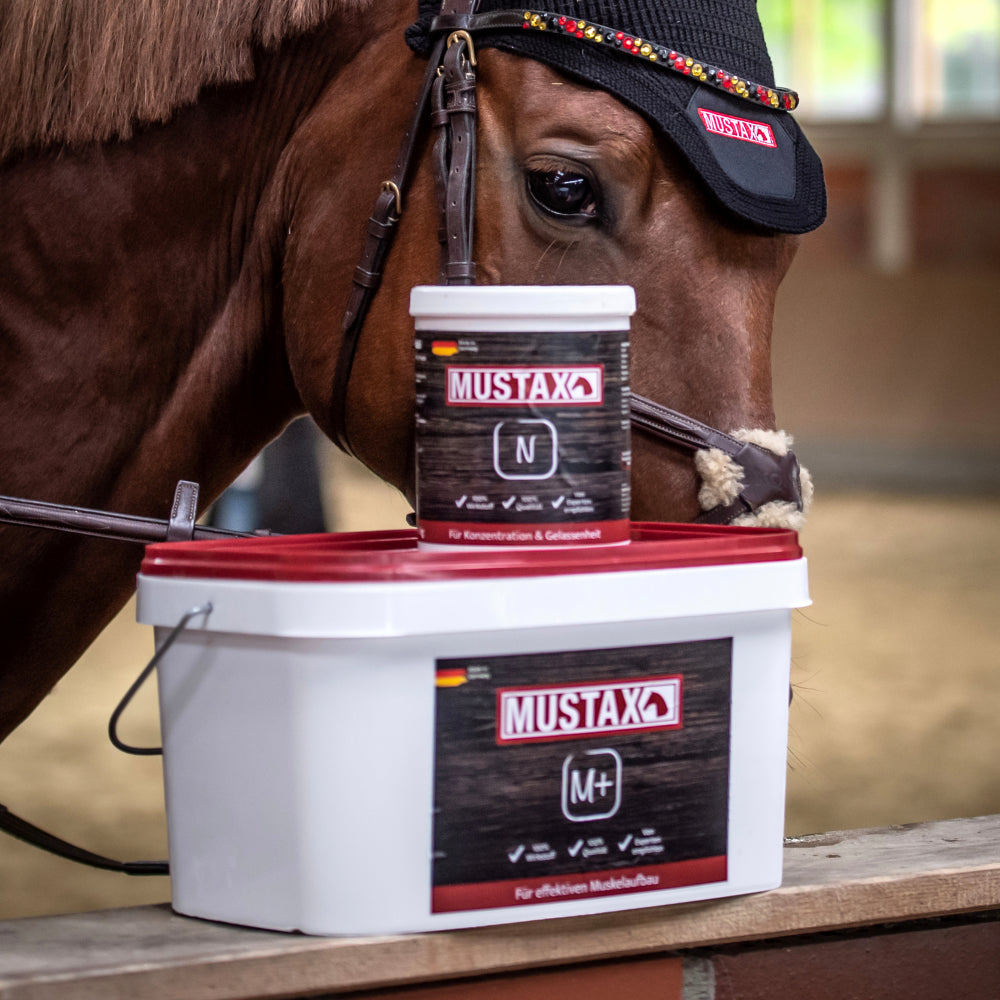
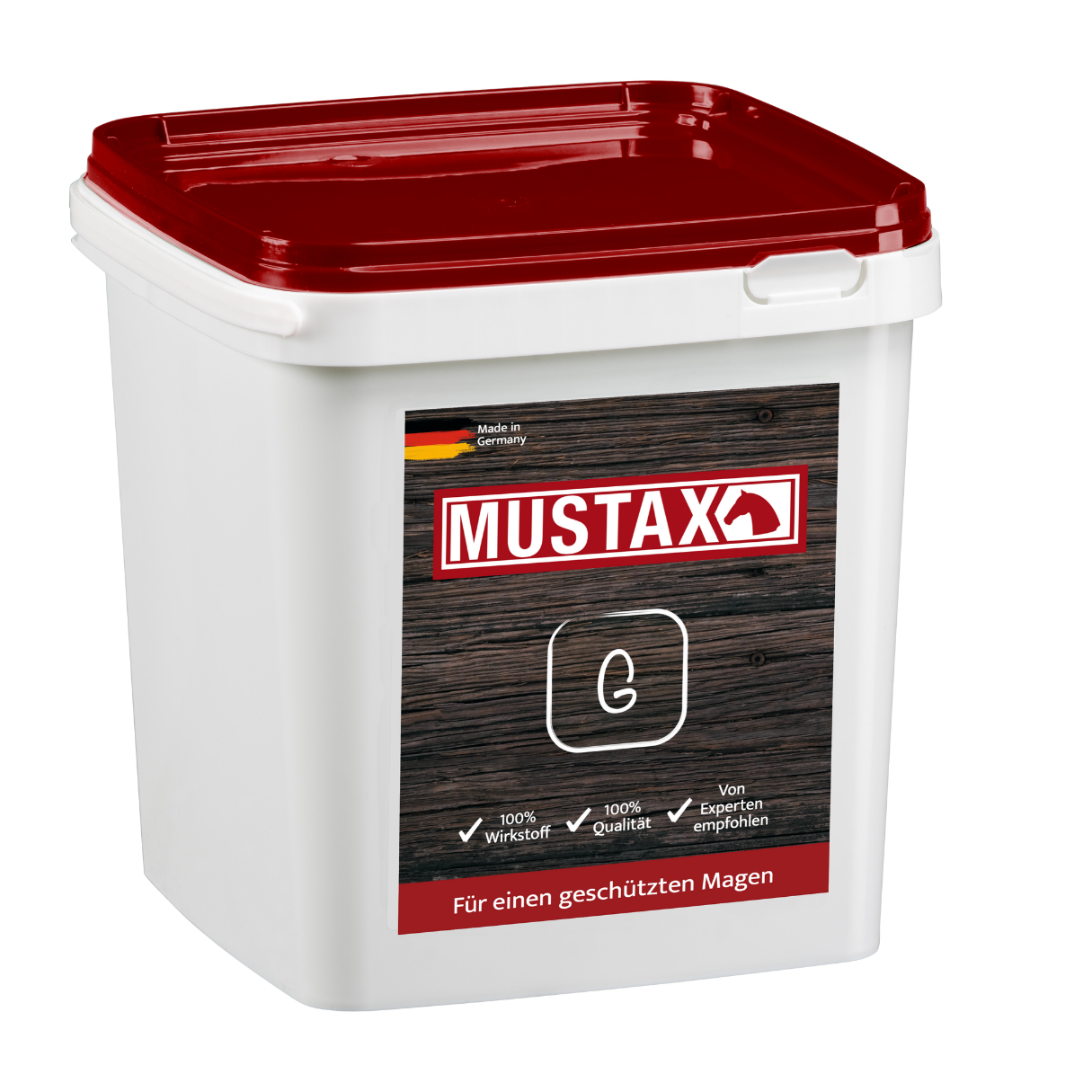
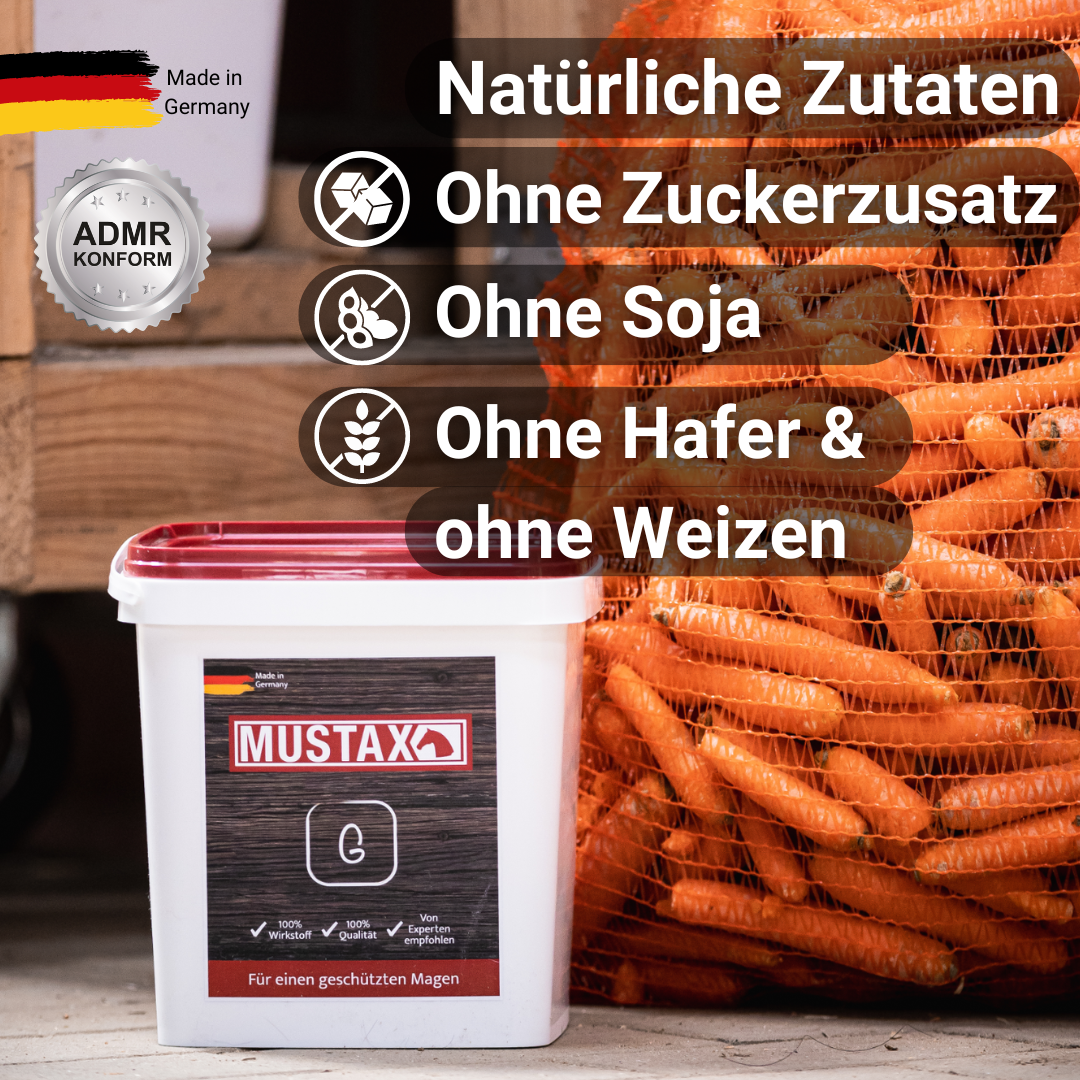
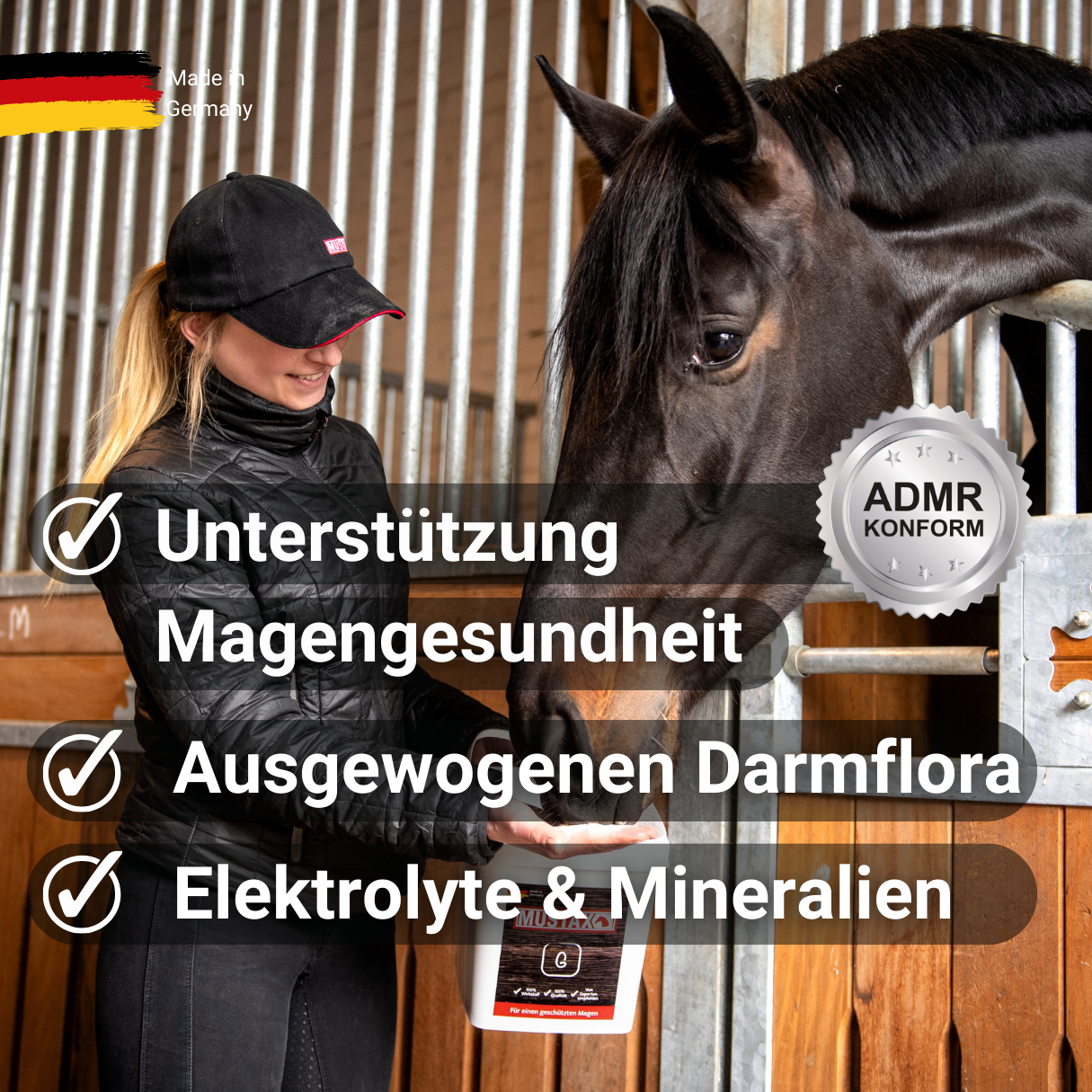
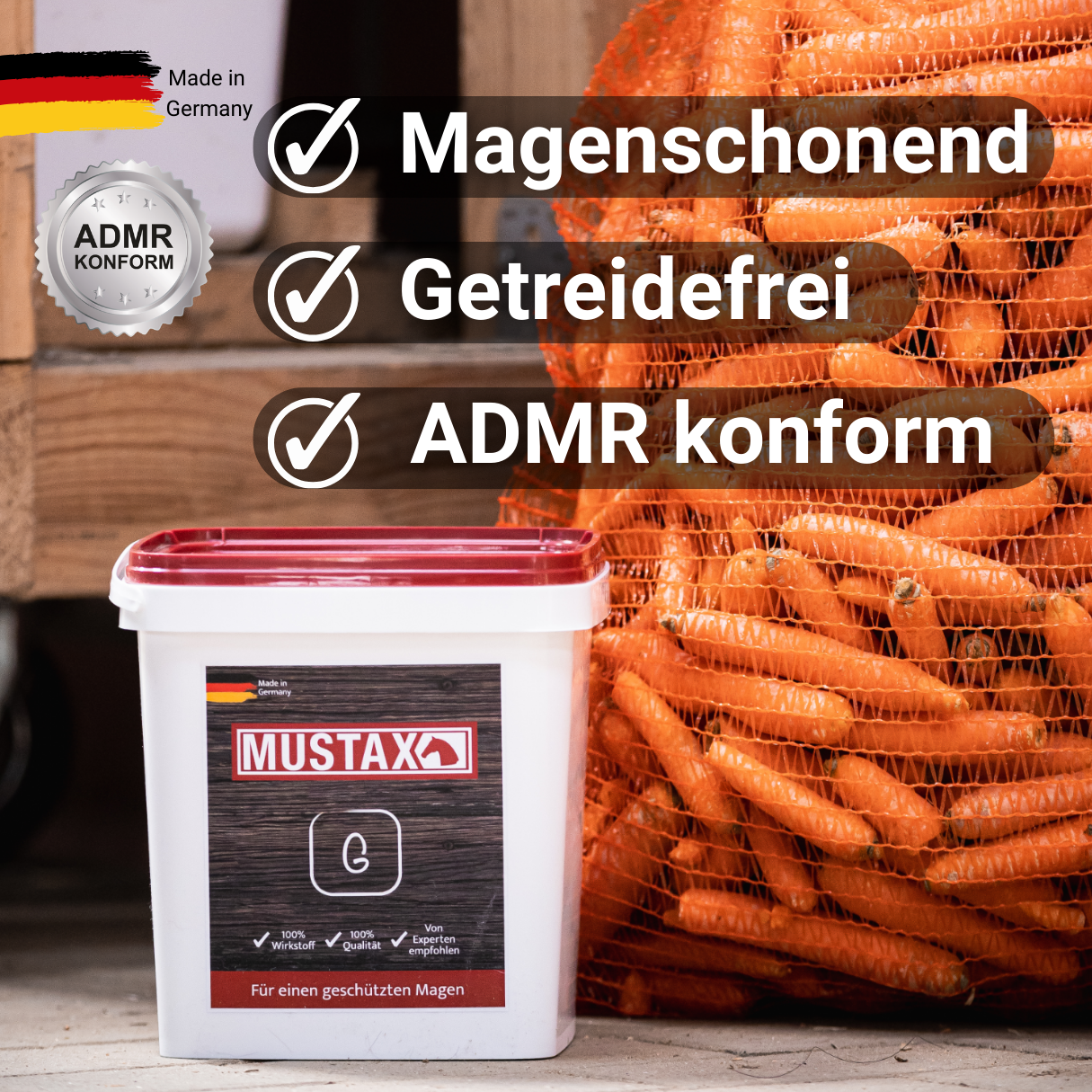
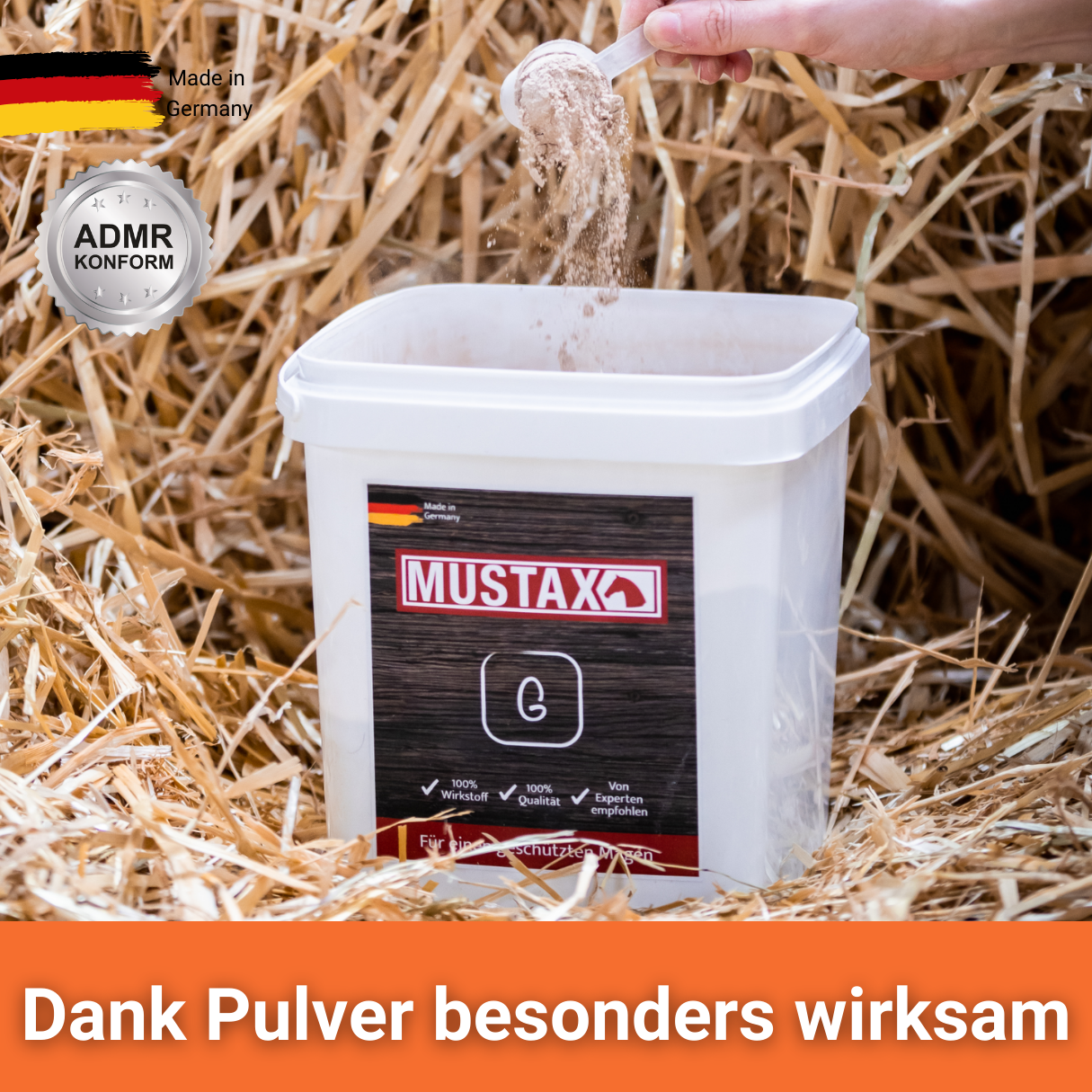
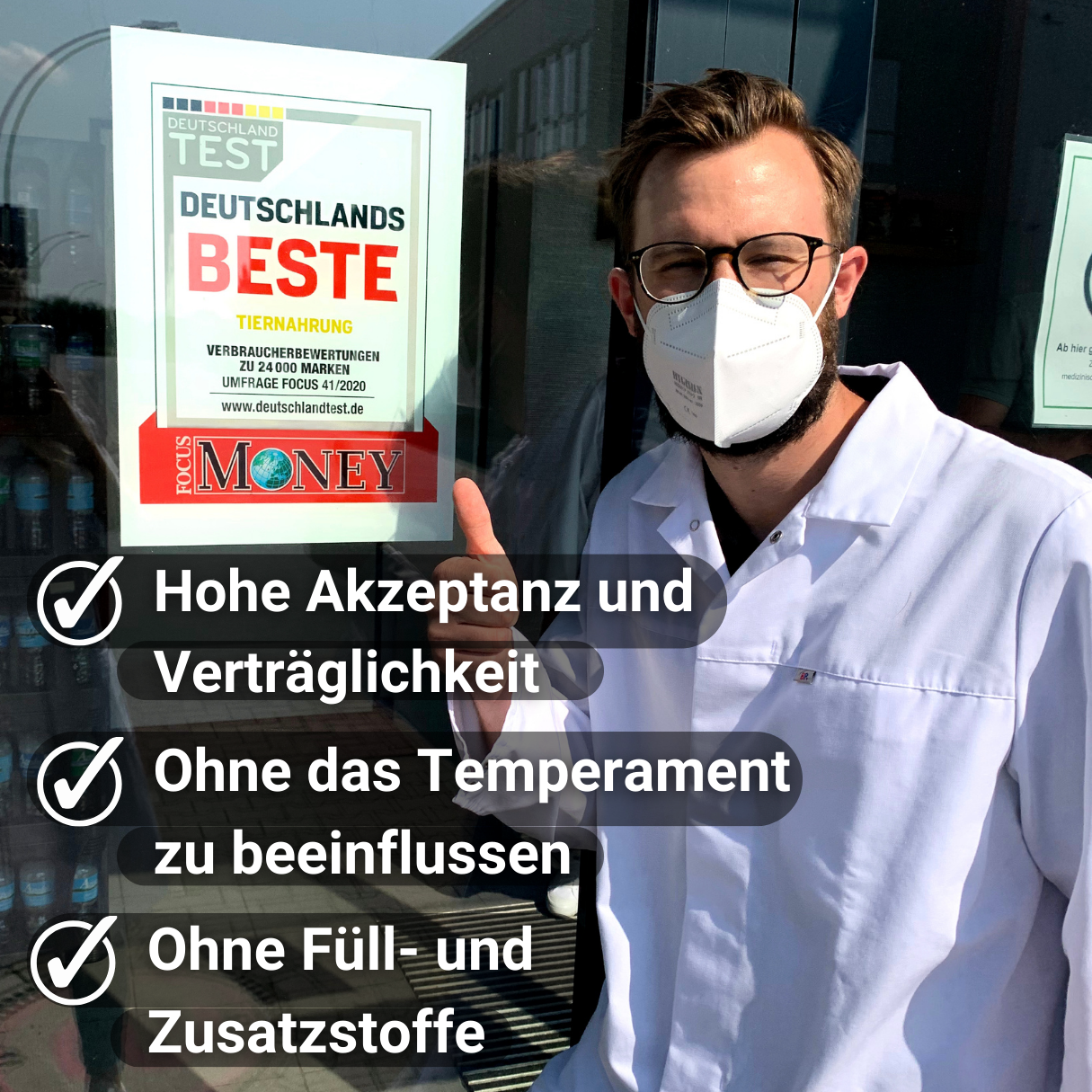
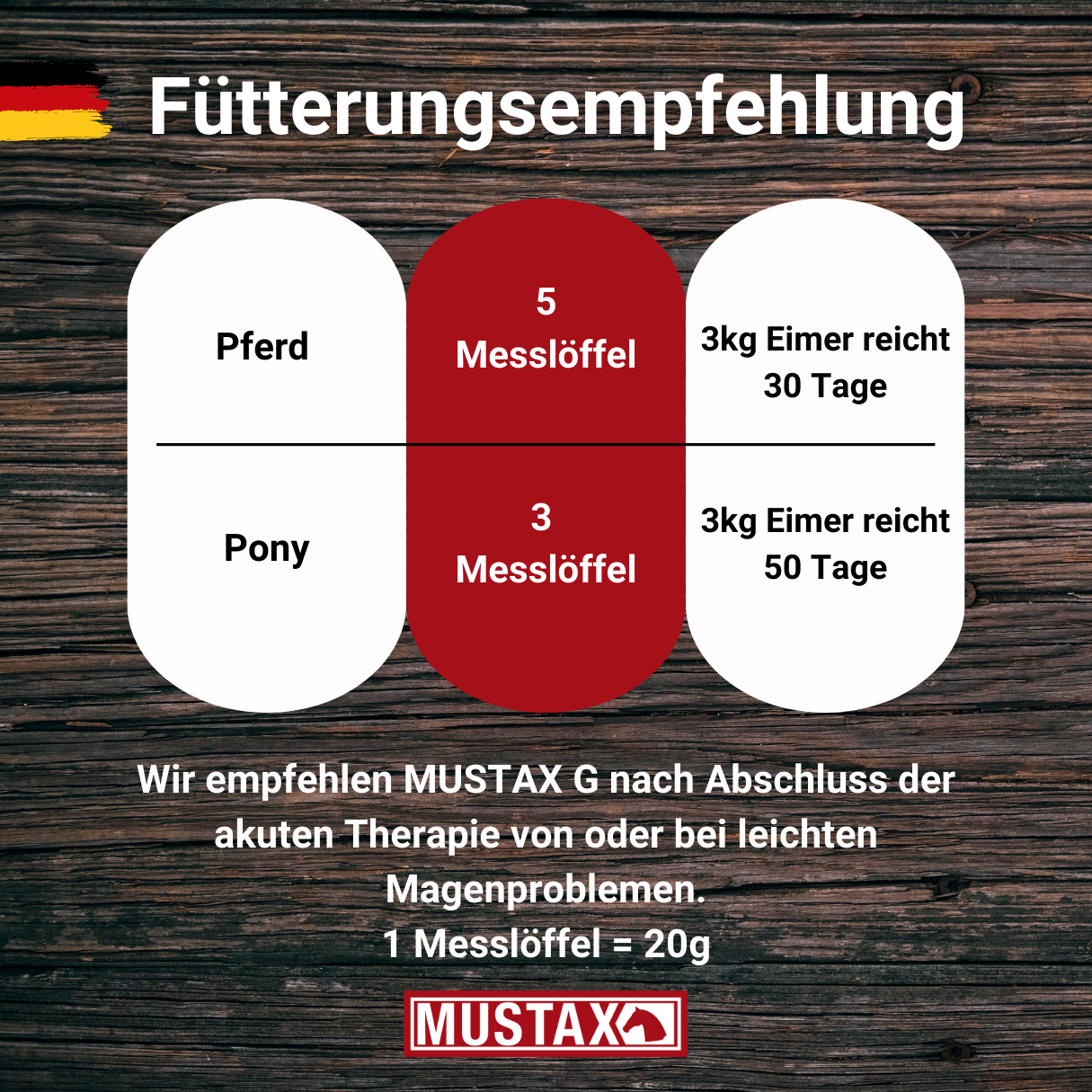
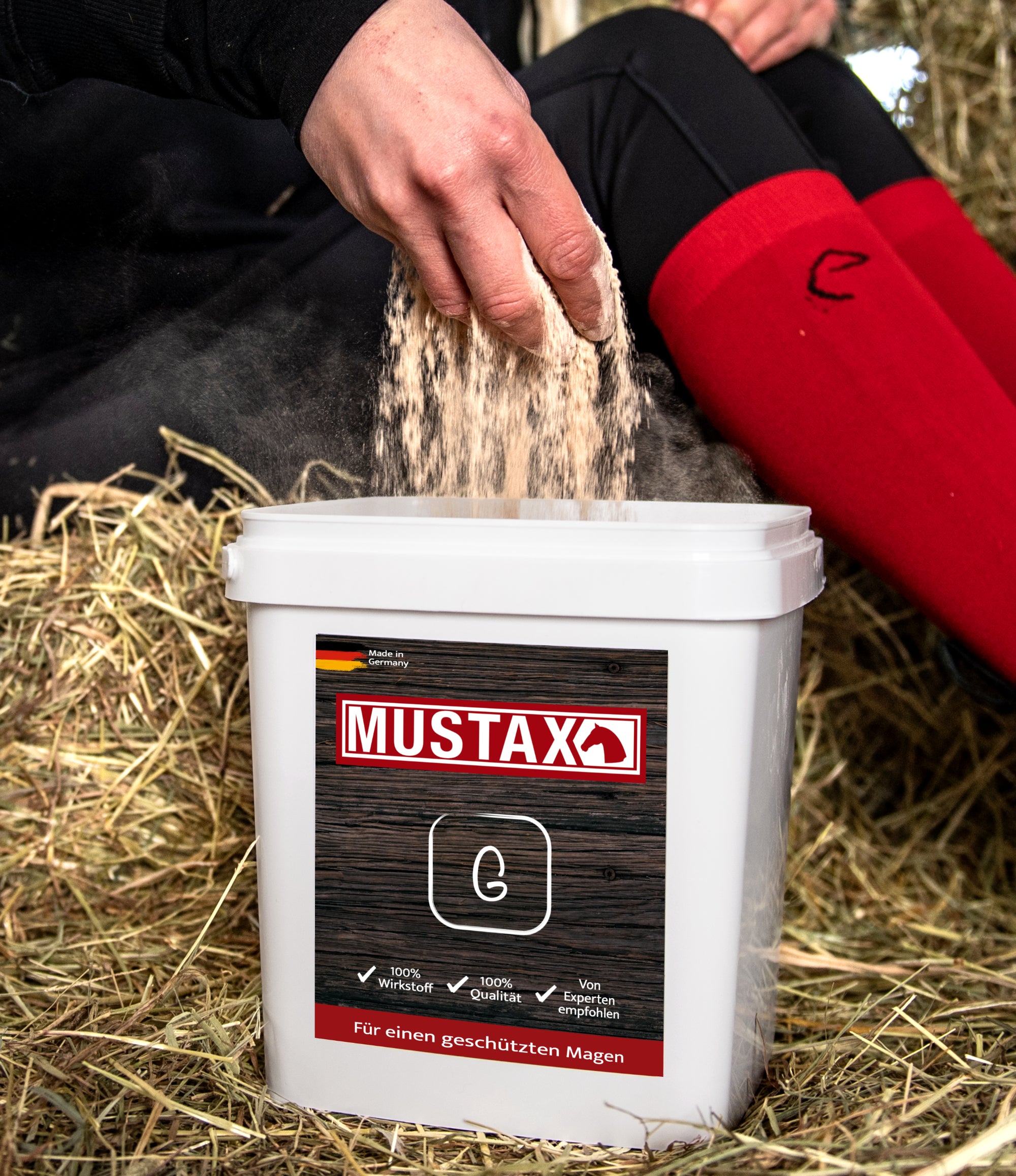
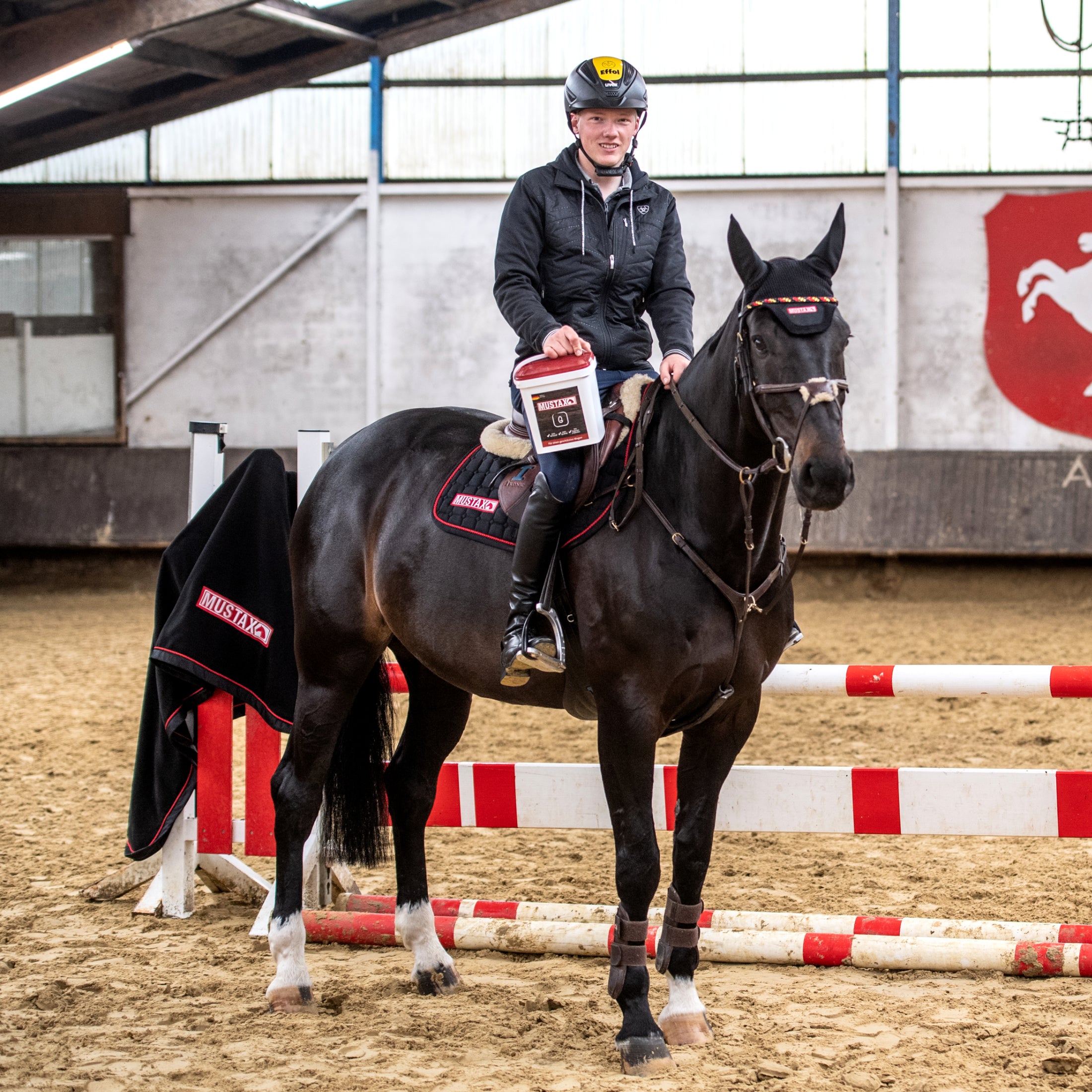



Leave a comment